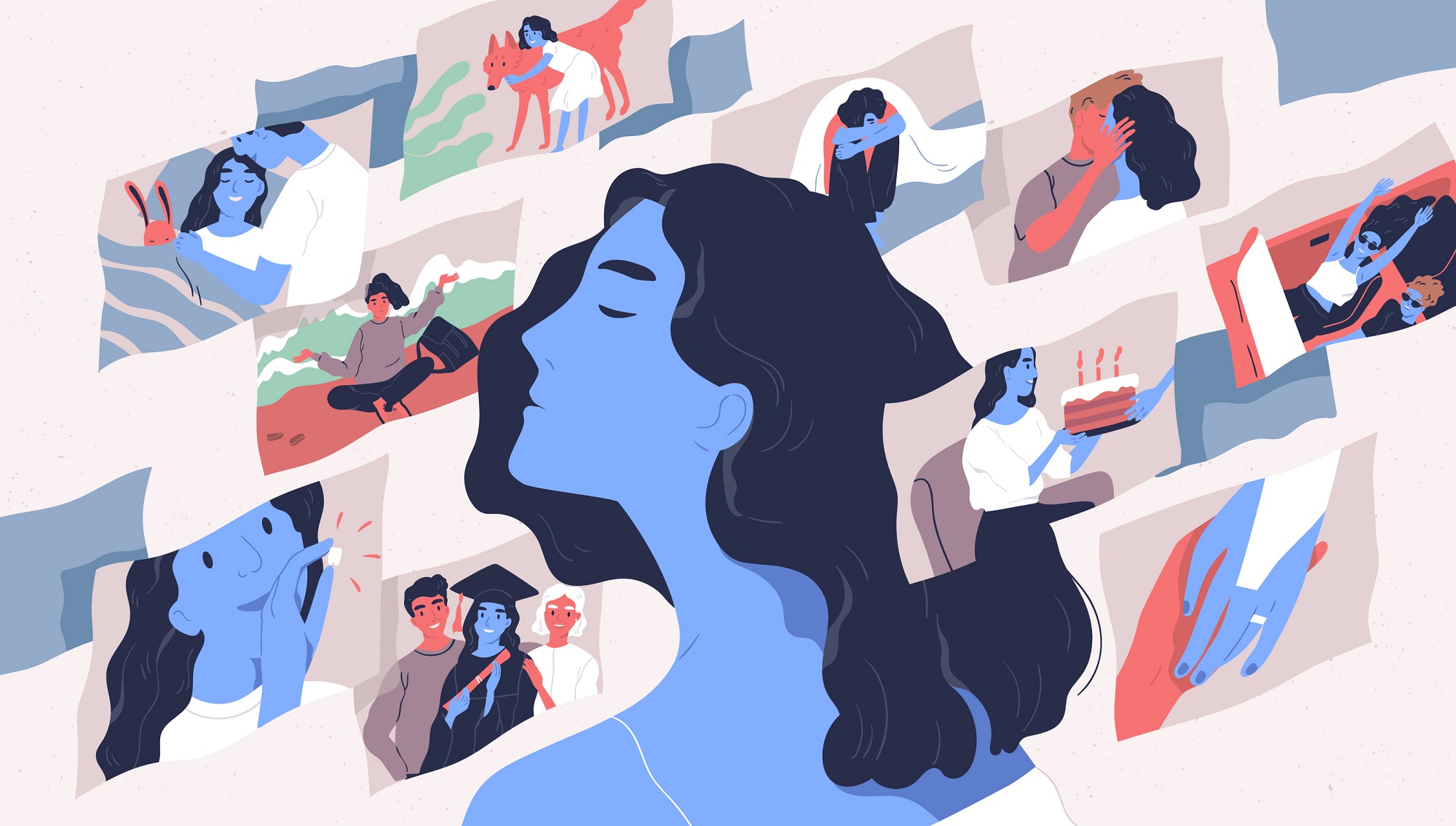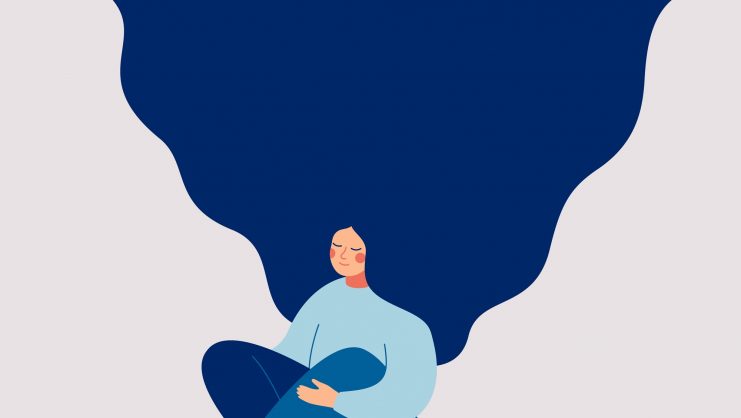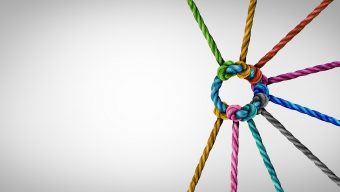The past year has brought a wide range of novel and pressing questions that have completely disrupted our attention span. Individuals, just like organizations, have been forced to make sometimes highly impactful decisions in times of unparalleled uncertainty, and this decision-making has moved to the forefront of our lives. In this context, resilience has become a buzzword, while others, like happiness, have been somewhat shunned, leading to the question: Is it a waste of our time to care about happiness given all the important matters and decisions that need our urgent attention? After all, Einstein famously said: “Well-being and happiness never appeared to me as an absolute aim. I am even inclined to compare such moral aims to the ambition of a pig.”
Two Kinds of Happiness
What did Einstein mean? Are we no more than pigs (metaphorically speaking) if we care about happiness?
Behind his famous interrogation is, in my view, a subtle difference between two kinds of happiness. The first is the well-being that arises from activities that bring us pleasure, like exercise, spending time with loved ones, enjoyable food, having fun, having sex, doing things that interest us. These are generally derived from what we can get from the world – let’s call them hedonic needs, which are by no means trivial. This is the primitive happiness Einstein derided, with his idea that only animals – in this case pigs – exist to receive from the world rather than give to it. This is in complete contrast to the many scientific contributions that Einstein himself made to the physical world – contributions that also happened to be the basis of his livelihood.
When chaos hits us, we rise to our highest potential and give to the world.
And this leads to the second kind of happiness: the well-being that arises independently of pleasant stimuli, and which is generally derived from what we put forth into the world. This happiness comes from the generation of ideas, when we are creative or innovative, build strong friendships, or develop judgment and views about the world, and also when we support friends, colleagues, family, and our community. A famous 2008 study found that the happiness we experience when given $20 to spend lasts much longer when we spend it on someone else rather than ourselves. We are, in other words, wired to share and contribute to the world.
And we have recent proof from the challenges of this year. Just look at the multitude of stories that have arisen during the COVID pandemic and the many weeks of confinement. Stories of how people helped and supported one another, connected with their loved ones in new ways, and reached out to their friends and colleagues. The Dutch philosopher Rutger Bregman recently published a book called “Humankind, A Hopeful History” which debunks the idea that we supposedly have a monster inside us just waiting to break loose. He demonstrates the opposite, that when chaos hits us, we rise to our highest potential and give to the world.
It is undeniable that happiness is important. Einstein’s message was not to ignore happiness, but to put our incredible brains to use in order to learn about and understand who we are as a species, so that we can not only meet our basic needs for health, shelter, education, love, and friendship, but also find a way to contribute to the world. This contribution is what can put us on our way towards happiness.
Happiness as a Non-Binary, Discoverable Mystery
A common pitfall in thinking about happiness is seeing it as the destination of a journey, a linear progression from being unhappy to happy. On the contrary, Tal Ben-Shahar, founder of the Happiness Studies Academy, who taught an incredibly successful class at Harvard University on positive psychology, argued that we should instead focus on being happier, not simply ‘happy’, explaining: “Happiness is a continuum, not a binary (happy/not happy). You can keep reaching new levels of happiness throughout your life. If you become just 3-4% happier, you become more innovative, a better listener, more engaged… This is extremely important for twenty-first-century leaders.”
Mario Alonso Puig, surgeon, fellow of Harvard Medical School, and President of the IE Center for Health, Well-being and Happiness, explains that happiness is finding that which exists where we don’t usually look. He describes it as a beautiful mystery that only we can discover because no-one else will do it for us. Unlike enigmas that scientists can solve, mysteries are revealed to us through our choices, our way of life, our way of being in the world; by trial and error. The clues to solving the mystery are not revealed when we are happy, warm, or fulfilled but rather when we look directly into the face of our own pain, fear, or suffering.
Put simply, we learn the clues to our own happiness by thinking about the “how” of our daily balance rather than the “what.” And many times, the how is revealed through our choices during hard times and sweet times.
Using the ‘3 Pillars’ to Start the Journey
One way to help us on the journey to a happier life is to increase our knowledge of ourselves, just as we would broaden our understanding of any subject. A good starting point is with the three fundamental pillars of who we are -the body, the mind, and the soul – because this trio are often in bad need of nurturing in the 21st century, given the context of the 4th and soon upcoming 5th Industrial Revolutions.
Firstly, we need a basic understanding of the incredible machine that powers us: our body, and how we are highly influenced by our brain and the rhythm of the many chemicals that are produced 24×7 to keep us going. What nutrients do we feed it? What exercise are we giving it? Are we moving or sitting still all day? Are we exercising it to maintain our inner strength? Are we resting enough so it can replenish its energy? Understanding how to best maintain our body gives us a strong, tangible base to becoming happier because balance and strength are the foundation of our personal power.
Secondly, just as important to a happier life is the ability to face the fragility of our own minds that can be affected by a mere thought or moment of stress, the various emotions we feel at every moment, the bodily sensations that arise during the course of the day (hunger, pain, tiredness) or an impulse to throw ourselves into action. Add to that all the stimuli and pressure we face every day which bear no resemblance to the world into which Homo Sapiens were born over 200,000 years ago and it is no wonder many of us find our minds are all over the place, agitated and anxious.
Thirdly, our souls are where our purpose is waiting to be discovered. This is where we as individuals feel the unique pulse that we bring to the world, which impels us to make a difference. It’s what guides our choices, and there is nothing more fulfilling than making choices, even if the results don’t turn out how we originally planned. The soul is where we find the strength to do the unimaginable.
Thinking about happiness is not futile; rather, it is the most daring endeavor we can embark on in the midst of a global pandemic because it involves befriending ourselves, leading to personal enlightenment and understanding, and in turn the strength to change the world for the better. Happiness has the opportunity to bloom every morning with this body, this mind, and this soul, and it is no one’s responsibility but our own.
It is perhaps a simple concept, but by no means easy. It is a lot of hard work.
© IE Insights.






